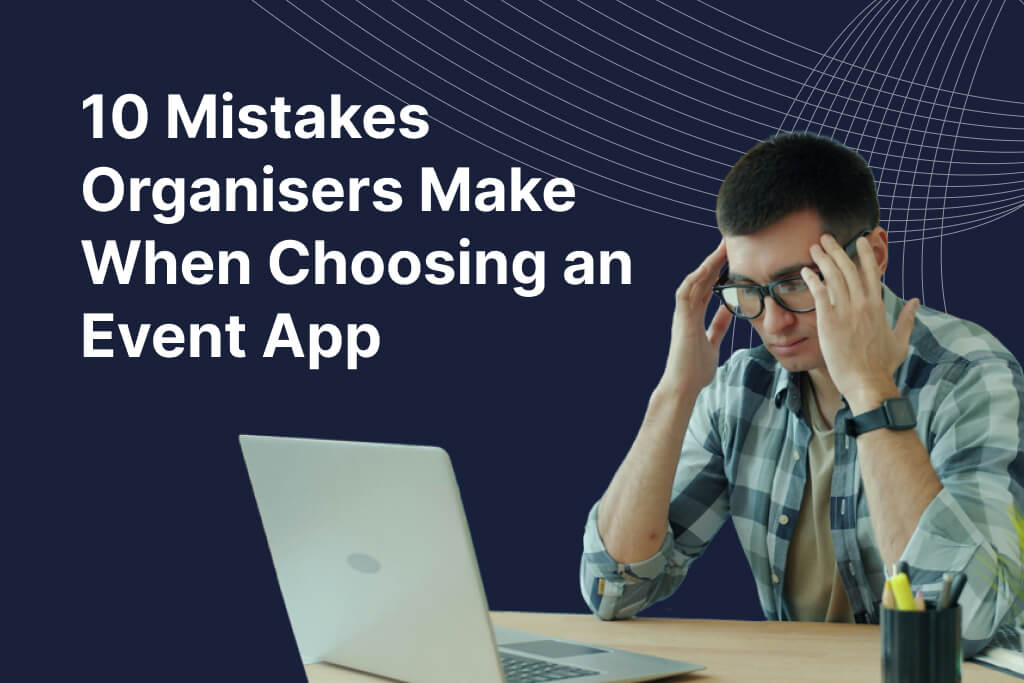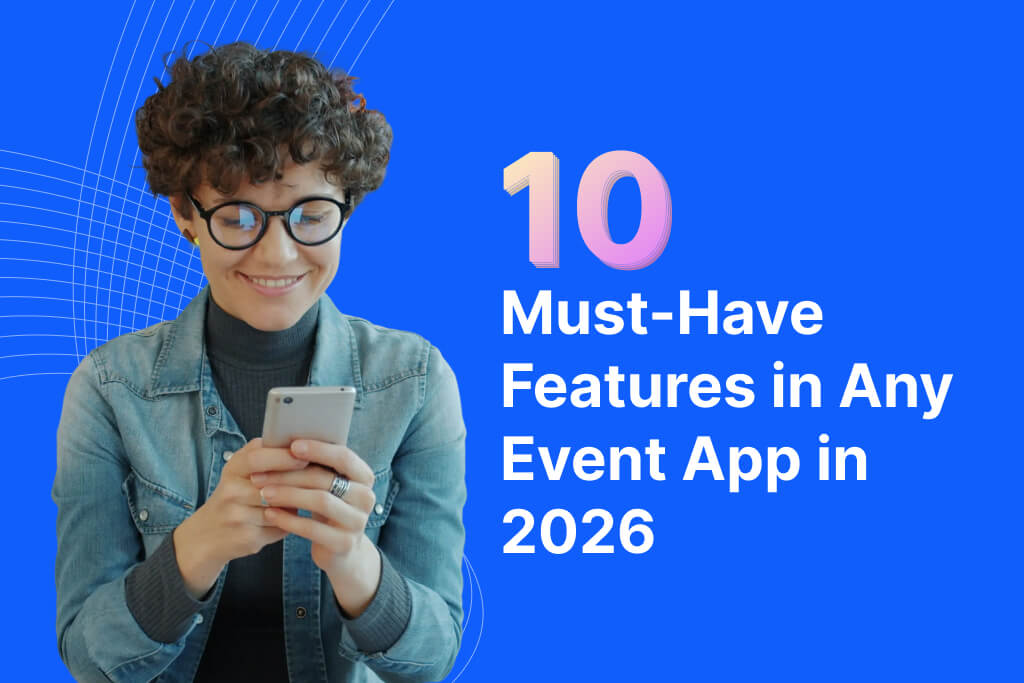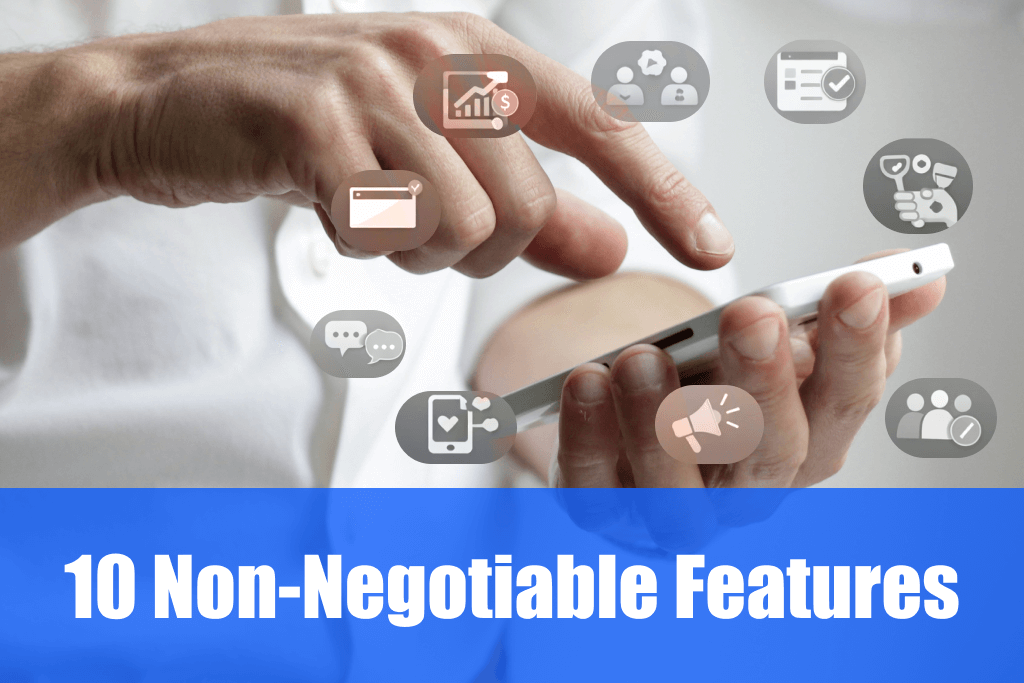Pop-up events are temporary, experience-driven events designed to generate excitement and brand awareness. They create a sense of exclusivity and urgency, attracting attendees who want to be part of something unique and fleeting.
They can be hosted in
- Virtually
- Face-to-face
- Hybrid
10 Types of Pop-Up Events
That's a great list of six pop-up event types! Here's a breakdown of each type to clarify their purposes and distinctions:
- Pop-up-to-Permanent Program: This term might be a bit of a misnomer. Pop-up events are generally temporary by nature. There might be cases where a pop-up event is so successful that it transitions into a permanent brick-and-mortar store. However, in the pop-up world, the focus is usually on the temporary aspect.
- Conversion- driven Pop-Ups: This is a spot-on description! These pop-up events are designed to generate buzz and awareness for a brand, product launch, or service. They leverage interactive elements and create a memorable experience to connect with potential customers.
- Seasonal Trends: These pop-up events capitalize on specific seasons or holidays. Think Halloween pop-up shops with spooky decorations and themed merchandise or a holiday market with festive offerings. They create a sense of urgency and cater to the seasonal shopping spirit.
- Engagement Pop-Ups: A great term! These pop-up events allow brands or businesses to test new ideas, products, or concepts. They provide valuable feedback and insights before a full-fledged launch, reducing risk and helping refine the offering based on customer response.
- Digital Pop-Ups: In today's digital age, virtual pop-up events are a growing trend. They leverage online platforms to create immersive experiences using 3D showrooms, product demonstrations, and interactive features. This allows for wider audience reach compared to physical pop-up events.
- Pop-In Shops: This term is often used interchangeably with "pop-up shops." Pop-in shops are essentially temporary retail stores that create a sense of discovery and exclusivity for shoppers. They can be standalone ventures or collaborations between brands.

Here are some more pop-up event types
7. Collaboration Pop-Ups: Team up with complementary brands or businesses to expand your reach and attract a wider audience. Tap into new customer bases, offer a wider range of products or services, generate co-branded marketing opportunities, and create a unique event experience.
8. Community Pop-Ups: Focus on building relationships with the local community and giving back. Partner with local businesses or charities for a cause-driven event. Boost brand image, connect with local customers, raise awareness for a cause, and foster positive community relations.
9. Product Launch Pop-Ups: Create excitement and anticipation around a new product launch with a dedicated pop-up event. Generate media coverage, gather valuable customer feedback, pre-sell products, and build hype for the official launch.
10. Retail Pop-Ups: These temporary stores allow brands to showcase their products in a physical space, often in high-traffic locations. Reach new customers, test market new products, create a sense of urgency and exclusivity, and build brand awareness.
Pop-Up Event Marketing
Pop-up events themselves are a powerful marketing tool, but to maximize their impact, consider these marketing strategies
- Build anticipation: Tease the event on social media weeks or days in advance, using intriguing visuals and limited information to pique curiosity.
- Partner with influencers: Collaborate with social media influencers who resonate with your target audience to promote the event and reach a wider reach.
- Offer exclusive deals or experiences: Incentivize attendance by offering limited-edition products, discounts, or special experiences only available at the pop-up event.
- Create a social media hashtag: Encourage attendees to share their experiences on social media using a unique event hashtag to increase visibility and user-generated content.
- Run contests or giveaways: Generate excitement with contests or giveaways leading up to the event, with the prize being access to the pop-up or exclusive products.
- Utilize email marketing: Promote the event to your existing email list, highlighting the unique experience and any special offers available.
- Leverage local media: Contact local publications or bloggers to generate interest in your pop-up event through articles or features.
By implementing these marketing strategies, you can ensure your pop-up event is a success, generating buzz, attracting your target audience, and achieving your marketing goals.
Key Characteristics Of Pop-Up Events
- Temporary: The fleeting nature of pop-up events (lasting a short time) creates a sense of "don't miss out" and encourages people to attend.
- Unique Location: Pop-up events often take place in unexpected or unconventional locations, like unused retail spaces, warehouses, or even public parks. This element of surprise adds to the experience and attracts interest.
- Experience-Driven: Going beyond just selling products, pop-up events focus on creating a memorable and engaging experience for attendees. This can involve interactive elements, product demonstrations, workshops, or even entertainment.
- Targeted Audience: Typically designed to target a specific demographic, pop-up events allow organizers to tailor the experience to the interests and needs of their ideal customer.
- Marketing & Social Media Buzz: Pop-up events leverage social media and other marketing channels to create anticipation and excitement before the event.
.jpeg)
Benefits of Pop-Up Events
- Brand Awareness: They're a great way to generate brand awareness and reach a new audience.
- Customer Engagement: Pop-up events provide a platform for direct interaction with customers and gather valuable feedback.
- Product Launches: They can create excitement and buzz around a new product launch.
- Cost-Effective: Compared to traditional retail spaces, pop-up events can be a more cost-effective way to reach customers.
- Data Collection: Pop-up events offer opportunities to collect customer data and gain insights into their preferences.
Pop-Up Event Examples
Here are some examples to spark your imagination
- Retail Pop-Ups: Temporary stores where brands showcase new products, test markets, or clear out inventory.
- Art Installations: Interactive or thought-provoking art installations that attract a large audience and generate social media buzz.
- Restaurant Pop-Ups: Unique dining experiences with limited-time menus or special guest chefs.
- Experiential Pop-Ups: Immersive events promoting a brand or product launch, often with interactive elements.
.jpeg)
How to Host A Successful Pop-up Event?
Hosting a successful pop-up event requires planning, creativity, and attention to detail. Here's a breakdown of the key steps to guide you through the process:
1. Define Your Goals & Target Audience
- What do you hope to achieve with your pop-up event? Is it brand awareness, product launches, customer engagement, or sales?
- Who is your ideal customer? Understanding your target audience's demographics and interests is crucial for tailoring the experience.
2. Choose a Concept & Theme
- What kind of pop-up event will resonate with your target audience and align with your goals? Consider retail pop-ups, experiential events, food & beverage experiences, or something more unique.
- Develop a theme that ties into your concept and brand identity. This will create a cohesive and memorable experience.
3. Determine Logistics & Location
- How long will your pop-up event last? A few hours, days, or weeks?
- What kind of space do you need? Consider factors like size, location, accessibility, and rental costs. Uniqueness can be a plus!
- Think about permits, insurance, and security needs.
4. Plan Your Budget
- Estimate your expenses: venue rental, equipment, staffing, marketing, materials, and any permits or licenses.
- Determine your revenue streams: Will you have sales, charge admission fees, or offer sponsorships?
5. Create a Marketing Strategy
- Promote your pop-up event through social media, email marketing, influencer partnerships, and local media outreach.
- Generate excitement with a countdown, teasers, and exclusive offers.
6. Design & Build Your Pop-Up Space
- Create a visually appealing and functional space that reflects your theme and brand. Consider lighting, furniture, displays, and signage.
- Ensure a smooth customer experience with a clear layout and easy flow.
7. Staff Your Pop-Up Event
- Recruit enthusiastic and knowledgeable staff who can answer questions and represent your brand professionally.
- Train them on your products, services, and event goals.
8. Execute & Analyze
- Ensure everything runs smoothly on the event day. Be prepared to adapt and troubleshoot any unexpected issues.
- Collect customer feedback through surveys or interactions.
- Analyze your results to understand what worked well and identify areas for improvement for future events.
9. Leverage technology
Consider using online ticketing platforms, digital signage for promotions, or social media walls to enhance the experience.
Speaking about technology, it plays a crucial role in managing and enhancing pop-up events. By strategically using event mangement software like Eventify, you can streamline your pop-up event management, enhance the attendee experience, and gain valuable data to optimize future events.
Here's a breakdown of how tech can elevate your pop-up experience
Pre-Event Planning and Promotion
- Event Design Software: Utilize 3D modeling or virtual reality software to visualize and plan your pop-up layout before investing in physical elements.
- Social Media Marketing Platforms: Leverage platforms like Facebook Ads or Instagram marketing to target your ideal audience and generate excitement for your pop-up event.
- Influencer Marketing: Partner with relevant social media influencers to promote your pop-up and reach a wider audience.
- Ticketing and Registration Platforms: Utilize online ticketing systems to manage guest RSVPs, control capacity, and potentially offer early access or exclusive deals.
Logistics and Operations
- Inventory Management Software: Track inventory levels in real-time to ensure you have enough stock throughout the pop-up's duration.
- Cashless Payment Systems: Implement contactless payment options like tap-to-pay or QR code payments for a quicker and more convenient checkout experience.
- Online Scheduling Tools: Manage appointments or product demonstrations efficiently with online scheduling tools for both attendees and staff.
Engagement and Experience
- Interactive Displays: Incorporate touchscreens, augmented reality experiences, or social media walls to create interactive elements that engage attendees and generate buzz.
- Live Polling and Q&A Platforms: Facilitate audience interaction through real-time polling or live Q&A sessions using audience response systems or dedicated apps.
- Photo Booth Apps: Offer a branded photo booth experience with a custom app that allows attendees to capture and share photos on social media, increasing brand awareness.
- Digital Signage: Display dynamic content like product demos, promotional videos, or social media feeds on digital signage to grab attention and provide valuable information.
Data Collection and Analytics
- Lead Capture Tools: Use tablets or mobile apps to capture attendee information (email addresses, preferences) for future marketing efforts.
- Social Media Analytics: Track social media mentions and engagement metrics to understand reach, brand sentiment, and identify potential leads.
- Website Analytics: Analyze website traffic data to understand which marketing channels are driving the most interest in your pop-up event.
Additional Considerations
- Mobile Event App: Develop or utilize an existing event app to provide attendees with access to schedules, product information, interactive features, and social networking opportunities.
- Virtual Reality Experiences: For a truly unique experience, consider incorporating VR elements that showcase your product or service in an immersive setting.
- Live Streaming Capabilities: Broader your reach by live streaming key moments of your pop-up event to attract a virtual audience and generate online engagement.
8 Event Ideas for Enhancing the Pop-Up Experience
- Celebrity Marketing: This is a great strategy to attract fans and generate media attention. Partner with celebrities relevant to your target audience and brand image.
- Partnering with other brands: Combine your brand with another that complements yours to reach a wider audience and offer a more diverse experience. Think of a fitness apparel brand collaborating with a healthy snack company for a pop-up fitness class with product samples.
- Provide Insider Access: Provide special discounts or deals available only at the pop-up event to incentivize purchases and create a sense of urgency.
- Giveaways & Raffles: Run contests or giveaways on social media or at the event to generate excitement and collect leads. Offer exclusive products or experiences as prizes.
- Treat Your Customers Special: Provide additional services related to your product or theme to enhance the customer experience. A clothing store pop-up might offer free styling consultations or a tech gadget pop-up could offer free data transfers.
Highlighting Products & Services
- Build your brand’s trust: Showcase your products in action through interactive demonstrations. Allow attendees to test and experience the benefits firsthand.
- New Launches: Create a buzz by launching a new product or limited-edition collection exclusively at your pop-up event.
- Freebies & gifts: Offer free samples of your product to entice attendees and generate interest, particularly for food & beverage pop-ups.
Remember to transform your pop-up event into a memorable and successful marketing tool:
- Target the right audience: Ensure your chosen strategies resonate with your ideal customers.
- Maintain a cohesive brand identity: All elements of the pop-up event, from promotions to the physical space, should reflect your brand.
- Measure your success: Track key metrics like attendance, sales, and social media engagement to evaluate the effectiveness of your strategies.
How to Promote Pop-up Events
Promoting your pop-up event effectively is crucial to attracting a crowd and achieving your goals. Here are some key strategies to create a buzz and generate excitement:
Pre-Event Hype
- Social Media Marketing: This is your biggest weapon! Create engaging content like teasers, countdowns, and behind-the-scenes glimpses on platforms like Instagram, Facebook, and TikTok. Utilize relevant hashtags to reach a wider audience.
- Influencer Marketing: Partner with social media influencers who resonate with your target audience to promote your event.
- Email Marketing: Craft compelling email blasts announcing the pop-up event to your existing customer base and subscribers. Highlight special offers and exclusive experiences available at the event.
- Press Releases & Media Outreach: Contact local media outlets, bloggers, and event publications to generate buzz and secure coverage for your pop-up event.
- Collaborations: Partner with local businesses to cross-promote the event. This could involve offering discounts or hosting the pop-up in a complementary location.
Building Anticipation
- Create a Dedicated Event Page: Provide all the essential details about your pop-up event on a dedicated web page or landing page. Include information like dates, times, location, participating brands (if applicable), and a clear call to action (e.g., RSVP, subscribe for updates).
- Run Contests & Giveaways: Generate excitement with social media contests or giveaways leading up to the event. Offer exclusive products or experiences as prizes to incentivize participation.
- Offer Early Access or Incentives: Reward your loyal customers or early registrants with exclusive perks like early access to the event, discounts, or limited-edition merchandise.
Event Day Strategies
- Eye-Catching Signage: Ensure your pop-up location is easily visible with eye-catching signage and balloons to attract passersby.
- Social Media Integration: Encourage attendees to share their experience on social media using a unique event hashtag. Offer incentives for posting, like a chance to win a prize.
- Live Streaming or Social Media Stories: Livestream or share stories on social media platforms during the event to give a glimpse of the experience and create a sense of FOMO (fear of missing out) for those who couldn't attend.
Post-Event Engagement
- Follow Up with Attendees: Send a thank you email to attendees after the event. Include highlights, photos, and a call to action to encourage future engagement with your brand.
- Analyze Results: Track key metrics like attendance, social media engagement, and sales to gauge the success of your marketing efforts. This will help you refine your strategies for future pop-up events.
By implementing all these promotional strategies, you can ensure your pop-up event creates a lasting impression and achieves your marketing goals. Remember, the key is to start promoting your event well in advance, create a sense of anticipation, and leverage the power of social media to reach your target audience.


.jpg)




.png)


.jpg)


